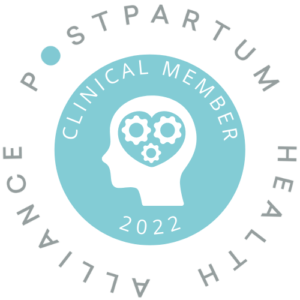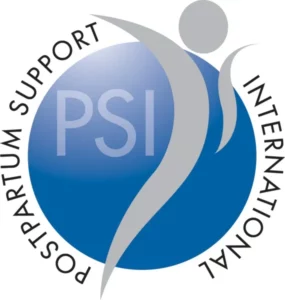Picture this: You and your partner decide you want to get pregnant.
You make an appointment with your OB and hope that they’ll set you up with a thorough work-up and a game plan.
Instead, your OB gives you the “annual exam” and advises you to “stop taking/using birth control and give it a go.”
Then they send you on your way, saying “Come back and see me if you’re not pregnant within a year.”
You leave the office thinking, “That’s it? Isn’t there anything I can be doing to prepare my body?”
You feel disempowered and helpless, wondering if and when you get pregnant is all just left up to chance.
Or maybe you leave the office thinking, “Well, this should be easy!”
But then, you don’t get pregnant right away. Or, maybe you do, but miscarry a few weeks later, only to be told by your OB that “this is common, just try again.”
In either case, you feel let down by the support and lack of direction from your OB.
This is understandable.
Most of us want to be able to take action where we want to see results. Unfortunately, many OBs’ medical training didn’t include ways to improve fertility, and they may or may not be up-to-date on the emerging research in this area.
If you’re anything like me when I was thinking about getting pregnant, it felt beyond frustrating. So I dove into the research and came up with these 10 things which helped me to get pregnant when I wanted to.*
(Disclaimer: I’m not a physician, and of course, no one, not even an physician, can guarantee if and when a pregnancy will happen.)
#1 Give yourself 3 months to increase your egg quality before trying.
The reason to get started 3 months in advance is that this is a crucial time frame for egg quality to improve prior to being released during ovulation. If you’re already trying to get pregnant, don’t freak out, just start now.
–> Keep reading for ways to increase egg quality.
#2 If you are in a heterosexual relationship, get your male partner involved.
As you know, the egg isn’t the only variable in creating a baby. It takes sperm too. While the majority of “getting pregnant” advice focuses on the woman, it only makes sense to consider the male – the sperm – as well.
And good news – it’s possible to increase the quality of both the egg and the sperm. Better egg and sperm quality = better odds of getting pregnant when you want and staying pregnant.
#3 Get checked out by a Doctor.
Women: if you haven’t already, get a PAP. A PAP can bring to light possible conditions that might interfere with getting pregnant such as endometriosis or polycystic ovarian syndrome. If you learn that you do have either of those conditions, you can then start to be proactive about lifestyle changes and additional supplements to reduce any interference that these conditions might have on getting pregnant.
In addition to a PAP, ask for specific labs to be run. Most OBs don’t offer to run specific tests; you have to ask for them.
Key tests to ask for: iron, vitamin D, AC1 (which looks at recent blood sugar levels), and B vitamins to be tested. That will help you to know if you need any additional supplementation in these areas and/or need to increase consumption of foods with these nutrients in them.
Men: get your sperm tested. These days you don’t even have to do to the doctor’s office but can get a sperm sample done at home and mail it in for your results.
#4 Start taking supplements – both of you.
For women, start taking a prenatal and CoQ10.
How to choose a prenatal: Most OBs say that any prenatal is fine as long as it as folic acid in it (which they all do). Folic acid is the synthetic form of the bioavailable nutrient, folate. Most people can convert folic acid into folate, but between 40-60% of the population have a genetic mutation called MTHFR which prevents them from converting folic acid into folate. If you have this mutation and aren’t properly supplementing, you may end up deficient in folate which can negatively impact your baby’s development and your health as well.
(For a more in depth explanation of folate versus folic acid, written by a registered dietician who specializes in prenatal nutrition, check out this article.)
Key ingredients to look for in a prenatal: Vitamin D, Choline (most do not have this), B vitamins including Methylfolate (instead of Folic Acid). I personally take Seeking Health. WeNatal is also a great option. WeNatal also includes iron which I like because it’s not uncommon to be iron-deficient (even if not anemic).
Additionally, supplement with CoQ10. Coq10 is an antioxidant shown to improve egg quality. (For more on how CoQ10 works and dosage suggestions, I highly recommend this book.)
For men, start taking C0Q10 and a supplement with folate and other B vitamins in it. WeNatal is a supplement that includes all of this. One downside of the CoQ10 form in this supplement is that it is in the standard form which is ubiquinone, which is a form that isn’t very soluble, so much of it is not absorbed. The other form is ubiquinol which is much more easily absorbed. The CoQ10 linked above is the ubiquinol form.
#5 Reduce your toxic load.
We all take in toxins. That’s part of living in our modern world. But toxins can have a negative impact egg and sperm quality. The goods news is that there are several things we can do to reduce our toxic load. Check out my blog post on clear beauty and household products that I personally use and love.
+Swap chemical cleaning and household products for cleaner versions. EWG.com is a great resource for finding a cleaner version of all of your typical products.
+Swap your current make-up products for cleaner versions. Again, EWG.com is a good resource.
+Swap plastic tupperware and bottles for glass containers and stainless steel bottles. Avoid take-out coffee cups as they are often lined with plastic which leach BPA and BPS. Use ceramic or cast iron skillets instead of teflon non-sticks.
+Drink clean water. We love using a reverse osmosis system which my husband purchased on Amazon and installed himself. This is a great option if you’re a homeowner. If you’re not, you can opt for a countertop one.
(For more of the science behind the connection between toxins and fertility, check out this podcast episode.)
#6 Eat whole foods (both of you).
I highly recommend reading Lily Nichols’ book, Real Food for Fertility. She has done an incredible amount of research on optimal foods for fertility and during pregnancy (see her previous book Real Food for Pregnancy). The book is over 500 pages! She discusses key nutrients for fertility and foods that build a healthy baby and shares research-backed information on common fertility challenges. She also discusses nutrients that may be lacking if you follow a vegetarian or vegan diet. Finally, her co-author shares information on fertility awareness and things the male partner can do to optimize sperm quality. Her blog is also an amazing resource if you want to dive deeper into prenatal nutrition.
Pro tip #1: if your budget allows, prioritize grass-fed meats, wild-caught fish like salmon, organic and grass-fed dairy, and organic veggies and fruits. These are all extremely nutrient-dense foods which support fertility and help to build a healthy baby. If you are sensitive to dairy, try A2 dairy as it can be easier to digest. For cooking oils, use olive oil, avocado oil, grass-fed butter and ghee, coconut oil, and meat tallows.
Pro tip #2: Fat is your friend but make them nutrient-dense fats. Embrace full-fat dairy, meats, butter, avocado, and oils (see recommended oils above). Avoid trans fats and hydrogenated oils at all costs.
Two foods that are highly nutrient-dense and super important for creating a healthy baby: eggs and liver. If liver isn’t already part of your diet and you are averse to trying it (it’s a strong flavor!), you can start with a desiccated liver supplement.
The EWG puts out a list of the “clean 15” and “dirty dozen” which can help you decide which fruits and veggies to prioritize buying organic and which are okay to buy conventionally.
Foods/drinks to reduce or avoid as they increase inflammation: processed foods, sugary foods and drinks, alcohol, soy, gluten, and alcohol, and seed oils (the most common ones you’ll see are canola oil and sunflower oil).
#7 Manage stress.
Easier said than done, I know. But, ask any parent and they’ll tell you that after you have a child is not the ideal time to start diving into childhood trauma, work on marital issues, or figure out how to have more productive conversations with your manager at work. Of course anytime you need support is a good time to go to therapy, but if possible, tackling issues when you’re not sleep-deprived and caring for a newborn is helpful.
Ways to manage stress:
+check out the final three tips on this list.
+start seeing a therapist and work through your “stuff.” No guilt or shame in talking with a qualified profession – we all have our “stuff!”
+make workday breaks non-negotiable.
+set boundaries with work, friends, family, and yourself.
#8 Get sunshine every day.
As I mentioned above, vitamin D is a key nutrient for optimal egg and sperm quality as well as fetal development. Yes, you can supplement (and likely should to be at optimal levels), but you can also get it directly from the sun. Getting outside also has the added benefit of giving you a pause in your day.
#9 Move your body.
If you don’t already have a regular exercise regimen, a simple 30 minute walk is a great place to start. Walking has amazing mental and physical health benefits, so don’t be afraid to start there.
If you are looking to up your game and/or want support in increasing your consistency, check out my guide here.
#10 Practice self-care and gratitude.
If you want to create a healthy baby, you want to have a calm and optimistic environment. Why? When you are stressed and not taking care of yourself, your body is in fight or flight mode. All systems are focusing on managing the stressors, not in putting in the extra effort to create and sustain new life.
So, taking care of yourself is a must.
Top tips for self-care:
+morning meditation: If you’re intimidated or turned off by meditation, try this one (it’s what I personally do!). Especially in the baby-making stage of life, I love the future-orientated nature of it as well as the phase that focuses on gratitude.
+plan your weekly self-care ahead of time and schedule it into your days. Scheduling it in really helps with follow-through.
+get good sleep – 6-8 hours with research showing that 7 hours is ideal.
+drink water throughout the day. I like to follow the “drink half your weight in ounces” principle as a guide for how much water I aim to drink throughout the day.
+try not to obsess. It can be SO hard not to become getting-pregnant obsessed, but as much as possible, try to stay balanced and carve out time for things unrelated to getting pregnant.
Those are my top 10 tips! I know it’s a lot to take in, and it may feel overwhelming. This guide is meant to give you lots of support so you can feel empowered, but feel free to implement these tips at your own pace. It’s not all or nothing! Any change is a positive step and can increase your chances of conceiving when you want and sustaining a healthy pregnancy.
Best of luck on your journey!
(Darcie Brown Therapy is a participant in the Amazon Services LLC Associates Program, an affiliate advertising program designed to provide a means for sites to earn advertising fees by advertising and linking to Amazon.com.)



